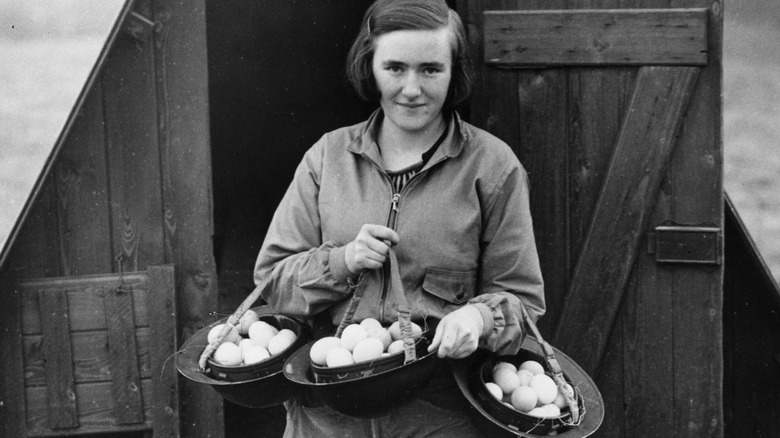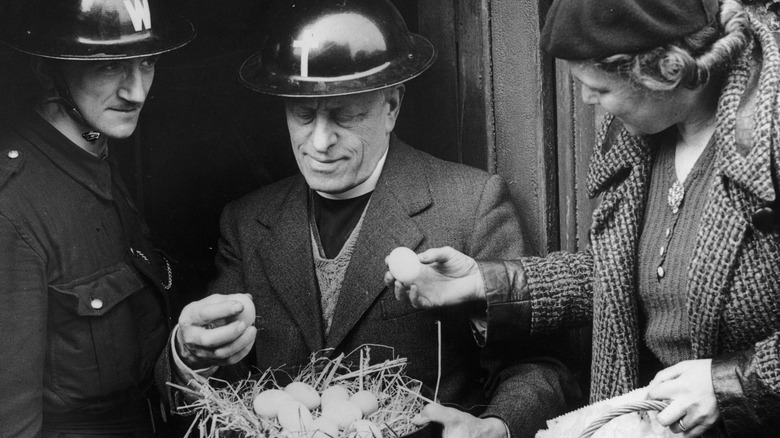Eggs Were A Lot More Expensive During WWII Than You Might Think
Humanity has had an affinity for eggs since the beginning of time. And while they're common features in daily meals today, there were times in history when eggs were considered a luxury. One of these periods was during World War II. The cost of living became inflated, and regular goods were not easy to acquire. Along with the government-enforced rations that ensured everybody got something (and nobody got enough), there was a terrible shortage of the essentials that we take for granted today.
The American soldiers in the trenches on the other side of the Atlantic could only dream of fried eggs for breakfast as they ate food from tin cans. Uncle Sam, forever the industrious, invented and shipped a strange new concept called powdered eggs to the men on the front lines.
And while powdered eggs were just as good a source of quality protein, taste-wise, nothing beats a fresh egg. According to Taylor & Francis Online, on the rare occasions that American soldiers came upon fresh eggs, it soothed them both "physically and psychologically."
The availability of eggs in WWII
The price of food before the start of World War II was relatively stable. But that changed when the demand for resources in military sectors increased. Once the U.S. forces crossed the Atlantic, a steady supply was needed to feed them.
The German submarines haunting the seas wreaked havoc as they preyed on supply ships heading for Europe. (Consequently, a large amount of what was intended for the stomachs of those on the battlefields (eggs included) became fish food.) The situation placed a massive strain on American food security; as such, restrictions were imposed. One such restriction was the Support Price, a protocol that ensured there was a minimum price paid for food items such as pork, dairy products, chicken, and eggs. It was implemented in 1941 and carried on until 1943, according to the Bureau of Labor Statistics.
Due to the strain on the food supply during that period, the price of eggs inflated. In 1940, a dozen eggs cost 33 cents, according to Sauder Eggs. That's an amount equal to a current purchase value of around $6.40, the company notes. By 1945, as the war drew to an end, the cost ascended to $0.57, which equates to around $8.45 today, according to the company. Compare that to the average price of a dozen eggs today: $2.50, per a report from CBS News.
WWII egg prices abroad
The United States wasn't the only country affected by steep egg prices. General food shortages plagued Europe, and England implemented food rationing with government coupons in January 1940, per Imperial War Museums.
The English were worse off because they were so close to the action, too. The island country was plagued by the enemy who seriously endangered their efforts at importing. When Uncle Sam joined the fray, it alleviated some of England's food problems as there was a constant source of food supplies flowing into the country with American soldiers and war resources from across the Atlantic.
As far as eggs were concerned, British food rations allowed each person just one fresh egg a week, per Historic UK. In response to the food shortage, Uncle Sam shared the powdered egg invention with America's British cousins — while the concept was an unusual one, it was better than no eggs at all.


